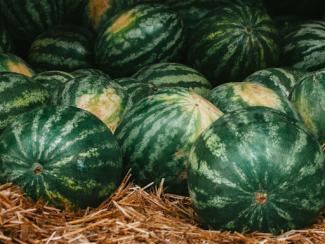
Botanists have recently traced today’s watermelon back to Sudan’s Kordofan melon. Before botanists made this connection, it had been believed that watermelons had originated in South Africa.
Egyptian hieroglyphs portray watermelon as an important part of ancient Egyptians’ daily lives, from harvesting them to placing the melons inside the royal tombs so deceased pharaohs would have food in the afterlife.
Across Africa, our ancestors cultivated their knowledge of watermelon with each harvest. They carried this wisdom with them across the Atlantic, even hiding watermelon seeds in their hair, so they were sure to have familiar food in the land of their enslavers.
For the Yoruba people, enjoying watermelon was a form of spiritual worship and resistance. Another custom enslaved Yoruba people preserved was Orisha worship.
Yemaya is the Orisha of all water, but especially the ocean. Yemaya translates to “Mother of all fish.” She traveled across the ocean to protect her enslaved children, and one way they honored her was to include watermelon as one of their spiritual offerings to her.
The longevity and preservation of watermelon is a metaphor for how we must continue to preserve our culture, pride, and ancestral wisdom as we fight for liberation.